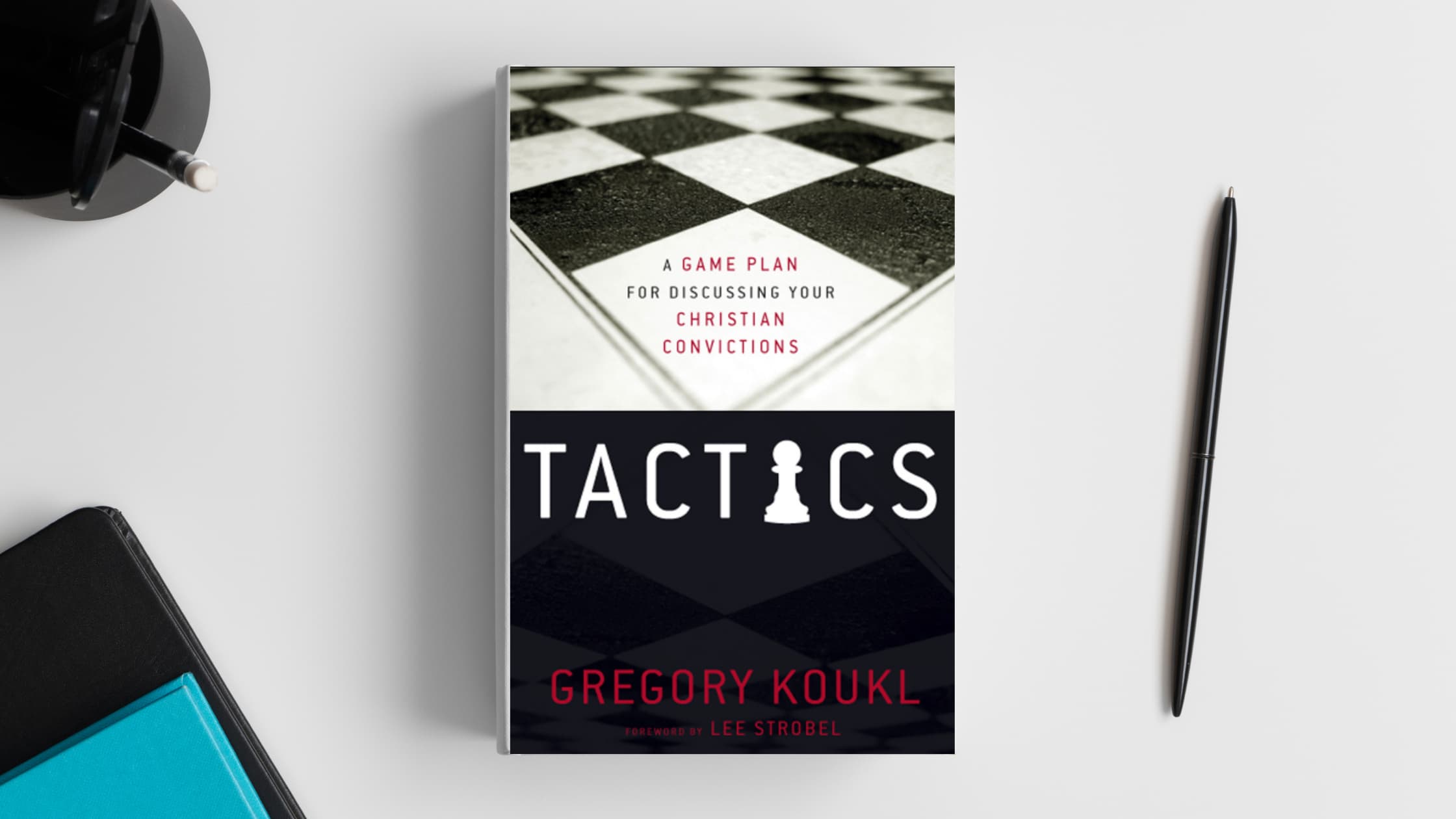If you are intimidated to share the Gospel, contradict lies, or address controversy, Tactics: A Game Plan for Discussing Your Christian Convictions by Gregory Koukl is the book for you! Not only does it give the tools needed to have a respectful conversation, but also it gives ideas and examples to hone the skills it teaches.
I remember reading Tactics while I was struggling through another book that was full of logical fallacies (errors in reasoning). Koukl’s explanations and examples helped me identify those errors and gave me the tools to clarify my position. But the purpose of his book is to help us engage in real-time dialog.
As a general rule, probably because political correctness has so permeated our interactions, we think that arguing is wrong, sinful even. There is a difference between an argument and a fight. The truth is we should, especially as Christians, be able to argue our positions with knowledge, wisdom, and respect. Scripture tells us that we should always be ready with an answer to defend our faith (1 Peter 3:15).
In his book, Koukl provides the reader with tools to implement when having controversial conversations. This could be witnessing to an unbeliever, having a conversation about a culturally-relevant topic with someone on the other side of the issue, or debating the finer points of theology with a brother or sister in Christ. Koukl gives the reader specific examples and “tactics” to have a successful and respectful exchange.

One of my favorite principles discussed in the book is what I affectionately call “the pebble principle.” Our job as Christians is not to convince others they are wrong and we are right. Our job is to put a pebble in their shoe—you know, a thought they can’t get out of their heads that keeps rolling around until they have to do some research and find out the answer.
Koukl reminds us that “it’s not [our] job to defeat their claim. It’s their job to defend it.” As Christians, we often get caught up in trying to prove them wrong when they haven’t given any evidence that they are right. He reinforces this idea by demonstrating that questions are more effective than statements.
In fact, most of his book is dedicated to teaching the reader how to ask the right questions in different situations. The goal is not to “trap them” but to gain insight into their worldview and lead them to recognize its failure. This opens the door to share Christ and the consistent biblical worldview.
Another important lesson from the book is the difference between opinions and facts. Koukl reminds us there is a difference between giving an explanation and giving evidence. Our society often forgets that Christians are not the only ones who need to answer for their beliefs. Whoever makes the claim must be able to defend it, and his opinion is not proof. Critics of Christianity rarely are prepared to defend their own “faith,” but instead focus on attacking.
Not only does Koukl give us tactics to use in dialog like asking leading questions, identifying self-defeating arguments, and getting down to the facts of the claim, but also he teaches us what the other side will do to distract from their claim like attacking our character, deferring to an “expert,” or using disproven data. And he gives all of these tactics clever names to help us remember them!
He ends the book with practical steps and ideas to prepare ahead of time so when we have the opportunity to dialog, we are equipped. But he makes an important point when he says, “Know your Bible well enough to give an accurate answer. Tactics are not a substitute for knowledge. Cleverness without truth is manipulation.”
This book is an excellent addition to an apologetics, worldview, or logic curriculum.






0 Comments